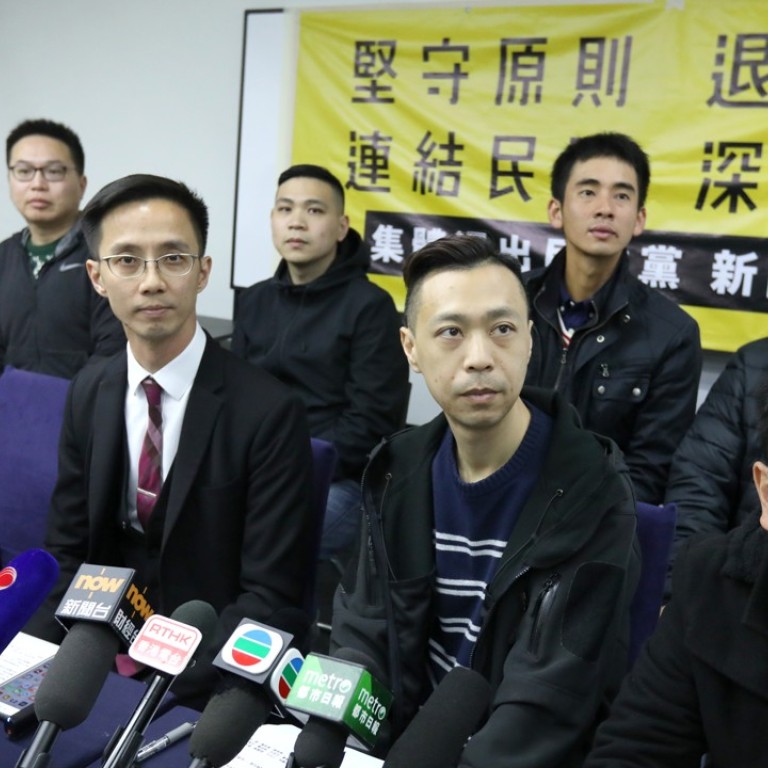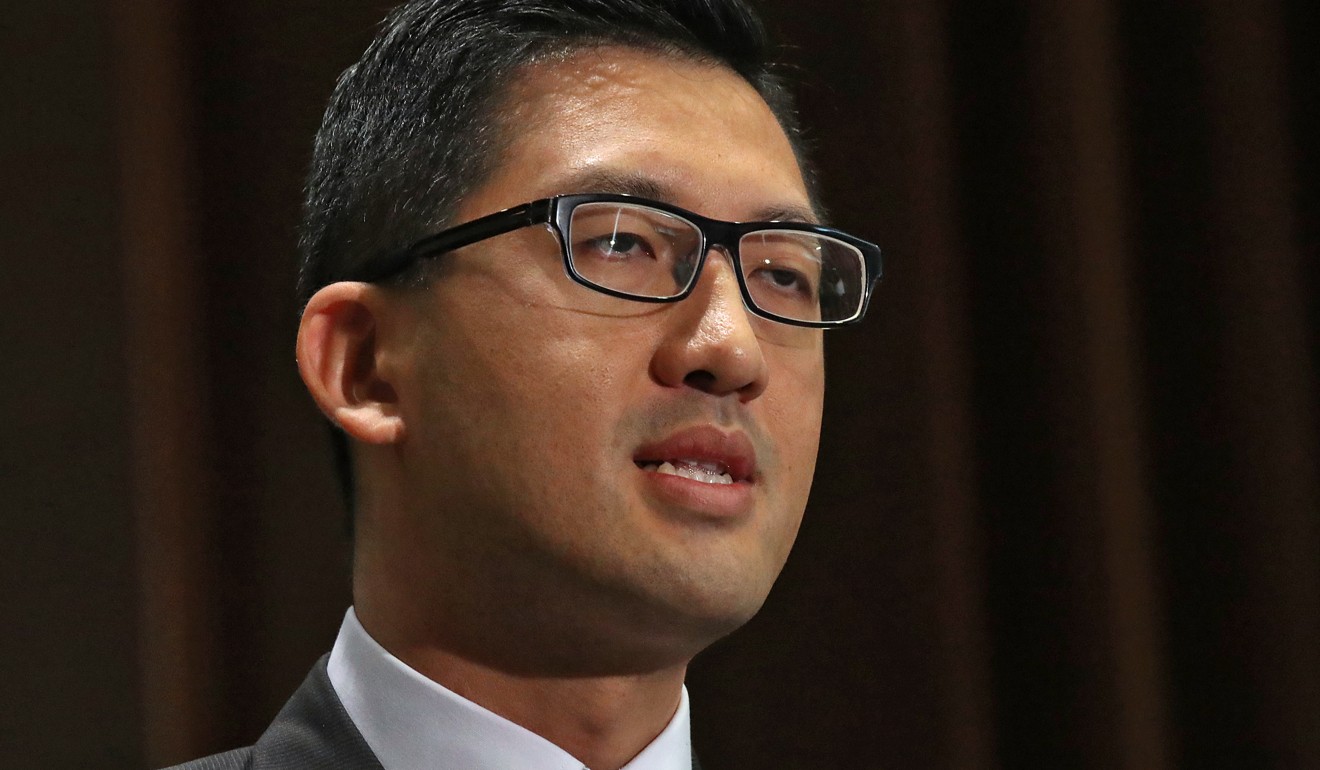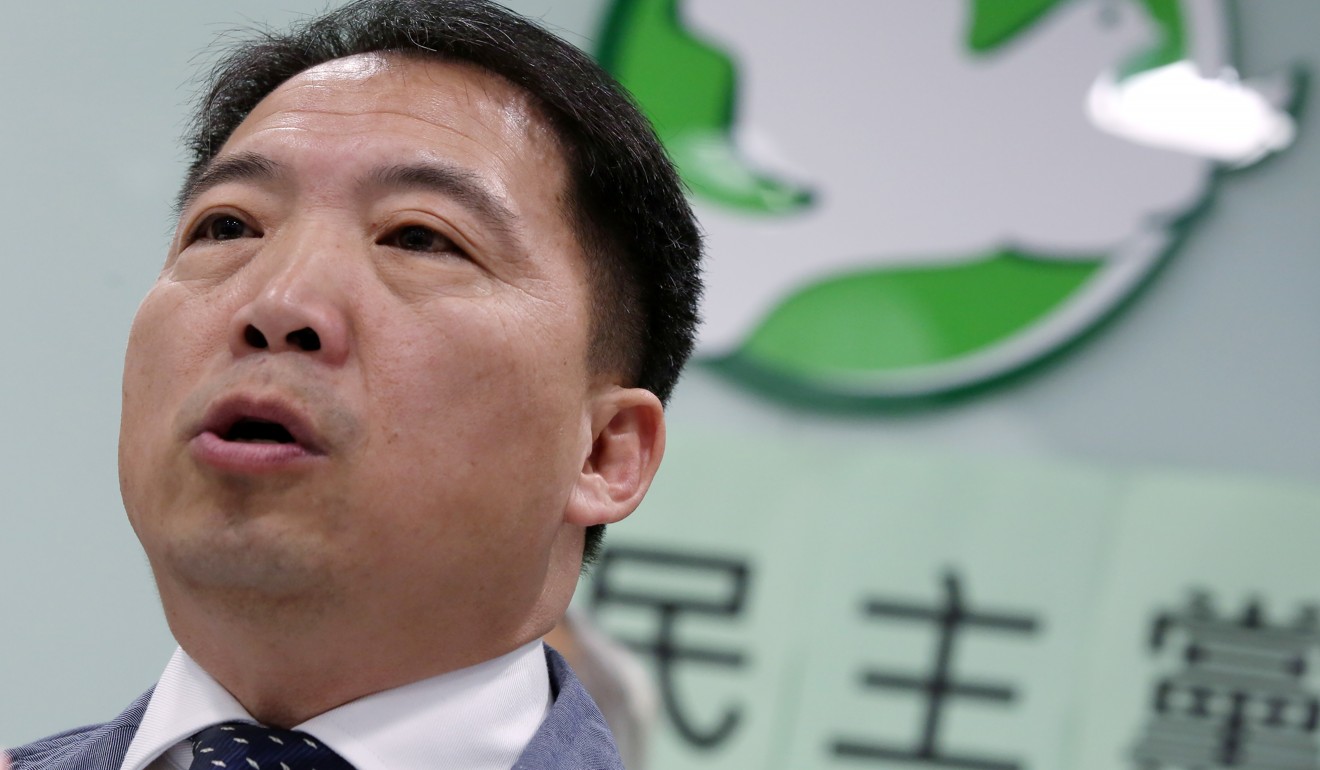
Hong Kong Democrats lose 59 members after row over district council elections
- Mass resignations include at least five district councillors from New Territories East
- Internecine conflict stems from members’ perceived conflicts of interest
Hong Kong’s biggest pro-democracy party suffered a historic loss of headcount on Wednesday when 59 members resigned en masse, after a row over the upcoming district council elections.
And leaders of the exodus warned the 700-strong Democratic Party that a dozen more were considering following them out of the door.
In a joint statement released on Wednesday, 11 of the leavers said they quit because of Democratic legislator Lam Cheuk-ting, who accused them of having conflicts of interest because they joined concern groups that would compete with the party in the polls next year.
“We have witnessed Lam’s despicable character, and his lack of political ethics,” the statement read.
As the party’s central leadership did not address the issues, they said, they had no option but to leave.
We have witnessed Lam [Cheuk-ting]’s despicable character, and his lack of political ethics
Three other Democrats co-signed another statement, which brought the number of known leavers to 14, including at least five district councillors from New Territories East.
Tai Po district councillor Au Chun-wah, one of the leaders of the exodus, said 45 others had left but did not want to be named. None of the party’s seven legislators were among the 59.
At a press conference on Wednesday evening, former Sai Kung district councillor Ricky Or Yiu-lam accused Lam of taking a series of “undemocratic” actions to curb competition in next year’s elections.
They included, he said, sending Democrats to contest constituencies already eyed by members of Concern Group for Tseung Kwan O People’s Livelihood, which Or chairs.
Lam was said to have raised the issue with party leaders, which led to the party issuing Or an ultimatum, “to stay in the Democratic Party or the concern group”.

But Or insisted the conflict of interest was “fabricated” by Lam.
Or said the resigners would “actively consider” forming a new group, but the priority would be to serve their communities.
Should the party send members to oppose them in the district council polls, Au said, they would “put up a fight”.
Lam said the accusations against him were untrue and the party’s decision on the ultimatum was made collectively, in accordance with its rules.
Party chairman Wu Chi-wai said he respected the leavers’ decision.

“We have to settle our differences, as we face the threat of the Chinese Communist Party and the pro-establishment camp,” Wu said.
It was unfortunate that the conflict could not be resolved internally, he added.
A Democratic Party member, who wished to remain anonymous, said two of the leading leavers were already affiliated with other district-level groups, and it was unethical for them to share party information and resources with non-members.
“You will have to pick a side,” the member said, adding that there was little hope of resolving the dispute.
Another source in the party said most of those leaving were “zombie members” who were inactive in party affairs, so it was unlikely to affect daily operations.
The Democratic Party was formed in October 1994 from the merger of two parties – the United Democrats of Hong Kong, and Meeting Point.
The Frontier, another political party led by former lawmaker Emily Lau Wai-hing, merged into the party in 2008.
It was the party’s first mass exodus since 2010, when Gary Fan Kwok-wai and more than 20 others left due to differences in opinion over a government political reform package.
Fan went on to form the NeoDemocrats and was twice elected as a lawmaker.

